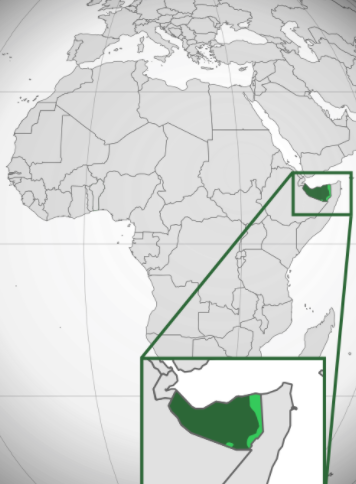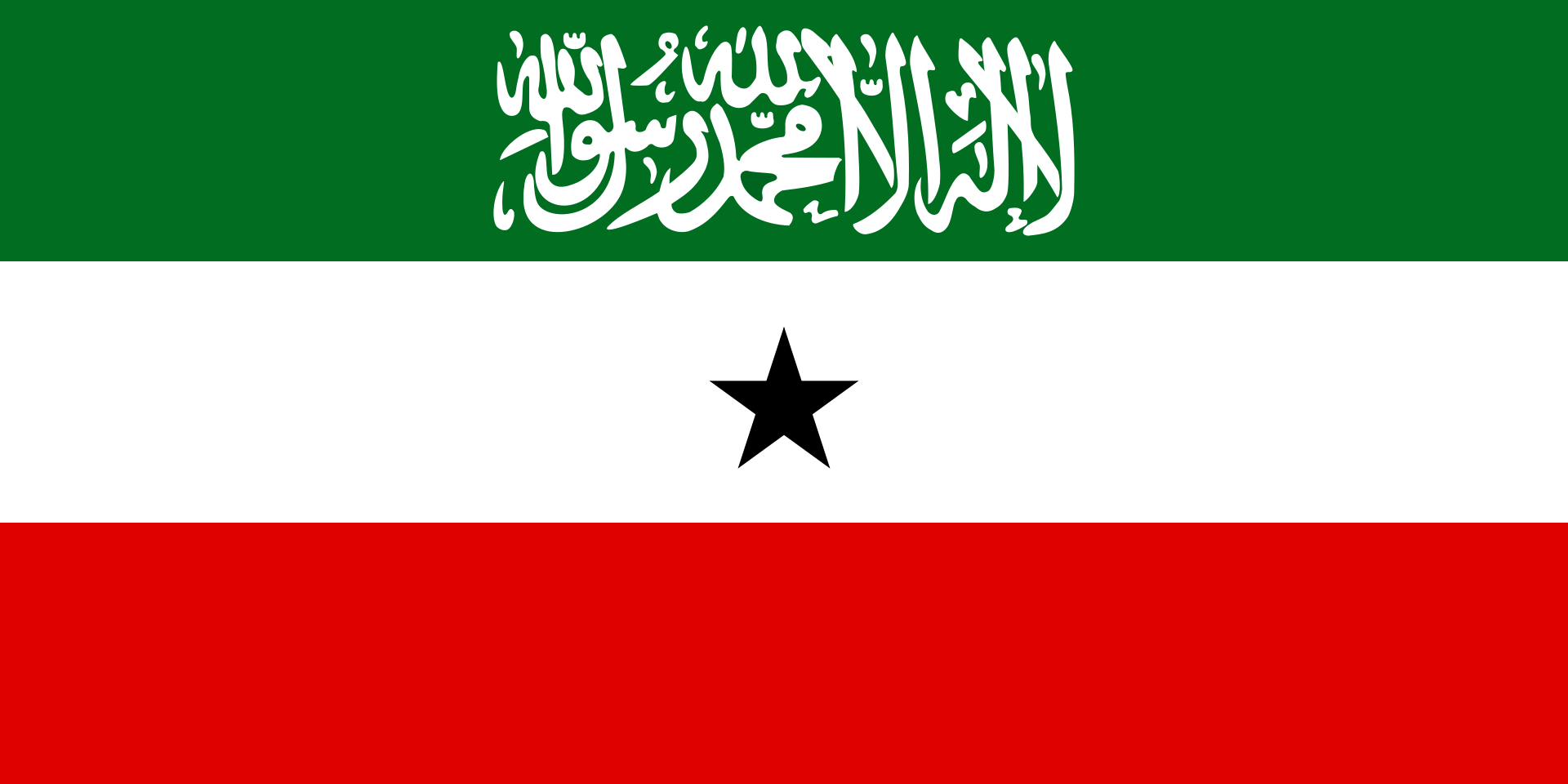On August 31st, the Ministry of Communication and Technology unveiled the latest sophisticated equipment from signals intelligence firm TCI International to manage Somaliland’s airwaves or spectrum.
According to the Minister, Dr. Abdiweli Abdulahi Sufi, this makes Somaliland the 27th country in Africa to have the ability to manage its airwaves.
The star of the well-attended ceremony was the TCI Model 737 installed on a V8 Toyota Land Cruiser with its directional antenna extended as a cadre of government ministers looked on in amazement.
TCI International specializes in spectrum monitoring, radio-frequency, and signal geolocation. Its core competency is what is known as SIGINT or communications intelligence and has supplied both civilian and military agencies for decades.

According to the minister whom we spoke to for this report, the procurement of the TCI 737 system is the part of the ministry’s effort to regulate the telecom sector and will enable the Ministry of Communication and Technology to enforce the Telecom Sites Regulations.
The Telecom Sites Regulation is the legislation that governs all aspects of telecom sites such as distance from populated areas, range, height, and infrastructure sharing. He added that it would enable the ministry to assess the fees of using the airwaves. He estimates that 80% of Somaliland’s airwaves are in use.
There have been public complaints and fear of adverse health effects from the cellular towers and their placement and proximity to residential areas throughout Somaliland’s cities where each carrier has its cell site rather than sharing resources.
At the unveiling ceremony, the Minister stated that this should put an end to public complaints about the health hazards of the numerous towers in urban areas and give the ministry the ability to measure the power output from cellular towers with great precision.
He added that his ministry would take appropriate legal action against anyone making allegations without proof.

At the outset, all looks well as the Ministry of Communication and Technology seems to be taking steps in the right direction to regulate the telecom sector with a mix of robust legislation and the purchase of a world-class spectrum monitoring system, but the main issue with this approach is the prohibitive cost of the system and that fact that the government can only afford one of these systems at the moment.
HOW MUCH DID THE TCI 737 SPECTRUM MANAGEMENT COST?
According to Somaliland’s government records reviewed by the Somaliland Chronicle, and corroborated by the Minister, Dr. Abdiweli the TCI 737 spectrum management system has cost an eye-watering 4,932,000,000 Somaliland shilling or roughly $580,000 US dollars.
Despite evidence to the contrary, the Minister asserted that 60% of the expenditure was paid from fiscal year 2019, finances, with the remaining 40% coming from the 2020 budget.
60% of $580,000 US dollars would still account for 23% of the ministry’s meager budget of roughly 1.5 million US dollars for 2019.
One of the main issues with the acquisition of the single TCI 737 mobile spectrum management system is the fact that it is a single unit and logistically enforcing the ministry’s Telecom Sites Regulations across Somaliland would be nearly impossible.
Asked how a single system can enforce the Telecom Sites Regulation across the country, the minister stated “Since purchasing a complete Spectrum Management System that can cover the entire country is expensive, and we cannot afford to acquire it once, we plan to implement a full functional Spectrum Management System in stages. That means our plan is to get more system units of both mobile and fixed ones that can cover all the six regions in the country for the future.”
OTHER PRIORITIES: POSTAL SERVICE, CARRIER INTERCONNECTIVITY, SECURE CRITICAL INFRASTRUCTURE
When asked why the Ministry chose to prioritize this costly system over other areas in its purview such as a functioning postal service in Somaliland, the Minister cited budget as one of the impediments and claimed that the postal service is functional to a certain degree and delivers over 1000 parcels for the Somaliland government agencies in the capital.
Another recent promise by the Ministry of Communication and Technology is the implementation of an e-government system, and when asked about it, the Minister stated “Regarding the e-government project, many tasks are going on internally, and we will share updated information for the public through the media at a suitable time. The Ministry is working on the Spectrum Management and e-government simultaneously.“
Another major issue for the public has been the lack of interconnectivity between carriers in Somaliland, the two major cellphone carriers Telesom and Somtel are unwilling to open their networks to each other.
“This question is related to what is called Telecom Services Interconnection. The main challenge is the tough competition between the two leading operators in the country. Their competition covers every side in the telecom, like pricing, subsidization, and the infrastructure. By taking those factors into consideration, the Ministry has developed Interconnection Regulations and roadmap that will guide the telecom interconnection. Similarly, the Ministry has brought together both Telecom operators and has hosted negotiations between the operators to solve issues and start interconnection service. The parties conducted several meetings at the Ministry premises. Therefore, the Ministry is working to enable this service to the Somaliland population soon.” the Minister said regarding carrier interconnectivity.
A blind spot for the Somaliland government and the ministry is oversight of national critical infrastructure. Despite the monumental significance of The ZAAD and e-Dahab electronic currency owned by the telecom companies to Somaliland and its financial sector’s basic functioning, the ministry has no oversight role from a strictly technical sense in the availability and security of these systems to minimize risk to the economy.
The ZAAD system has experienced intermittent outage in the past and earlier this month. There has been no official explanation of the root cause and no impact report to assess the economic price tag of these outages.
The Ministry of Communication and Technology has failed to institute any semblance of order and oversight on dozens of systems in various government entities some built with the help of aid agencies and others in a vacuum. The majority of these systems lack basic security to help protect public data.
PAST ALLEGATION OF SPYING
He stated that the equipment, once plugged into the telecom carriers’ network, will generate a file known as CDR or Call data Record. A CDR file contains granular metadata of a customer’s communication including the length of the call, tower relaying the call, starting, and receiving numbers.
Although the carriers have not yet accepted the integration of this system into their networks, the system is functioning according to the Minister.
The question whether the TCI 737 spectrum management system is capable of spying on the public was posed to the Minister by Mr. Sidiq Birmid of the BBC Somali Service and the minister answered with a simple no.
According to a source from the Ministry of Communication and Technology who spoke to us on strict condition of anonymity, “There is an inherent pressure on government officials especially ministers to show they are doing work but in this case, we have purchased a Ferrari and have no roads to drive it on. It is not hard to know where every tower (is) and we know were most are but the system [TCI 737] is a fantastic shiny object to dazzle the old guys at the helm and be another expensive relic that people will forget about soon.“.
He added “There is no denying that the telecom companies wield huge political clout which may explain why the Dr. Abdiweli and is defaulting to buying expensive tools to generate data that is already available at the telcos and the public and especially the government is entitled to with the right regulations in place. Remember, we bought equipment in 2018 to figure out the taxes they actually owe, and they simply refused to connect it to their system. End of the story. The missing ingredients seem to be the political will and robust regulation to gain this information to bring them into compliance”.
The Ministry of Communications and Technology is not the only government agency that over-promises and under-delivers as minimum consideration is given to the effectiveness of a project as opposed to the positive publicity its announcement will generate.
Although regulation of the telecom industry in Somaliland is a priority and the TCI 737 acquisition by the Ministry of Communication and Technology may help bring some order to the chaos, the single system that cost Somaliland taxpayers $580,000 US dollars may be nothing more than a proof of concept or an expensive publicity stunt.
This article first appeared in the Somaliland Chronicle and is republished with permission.










